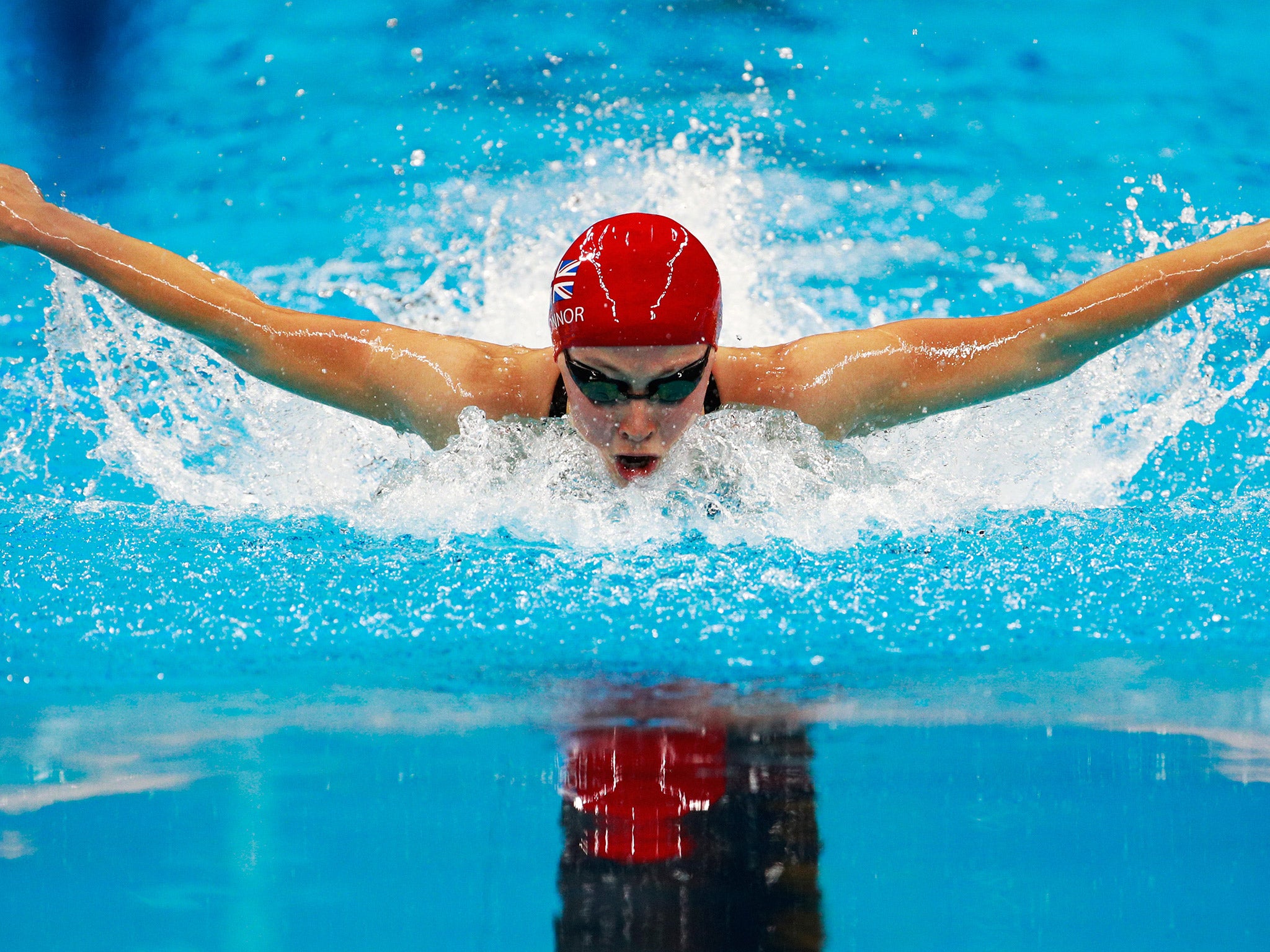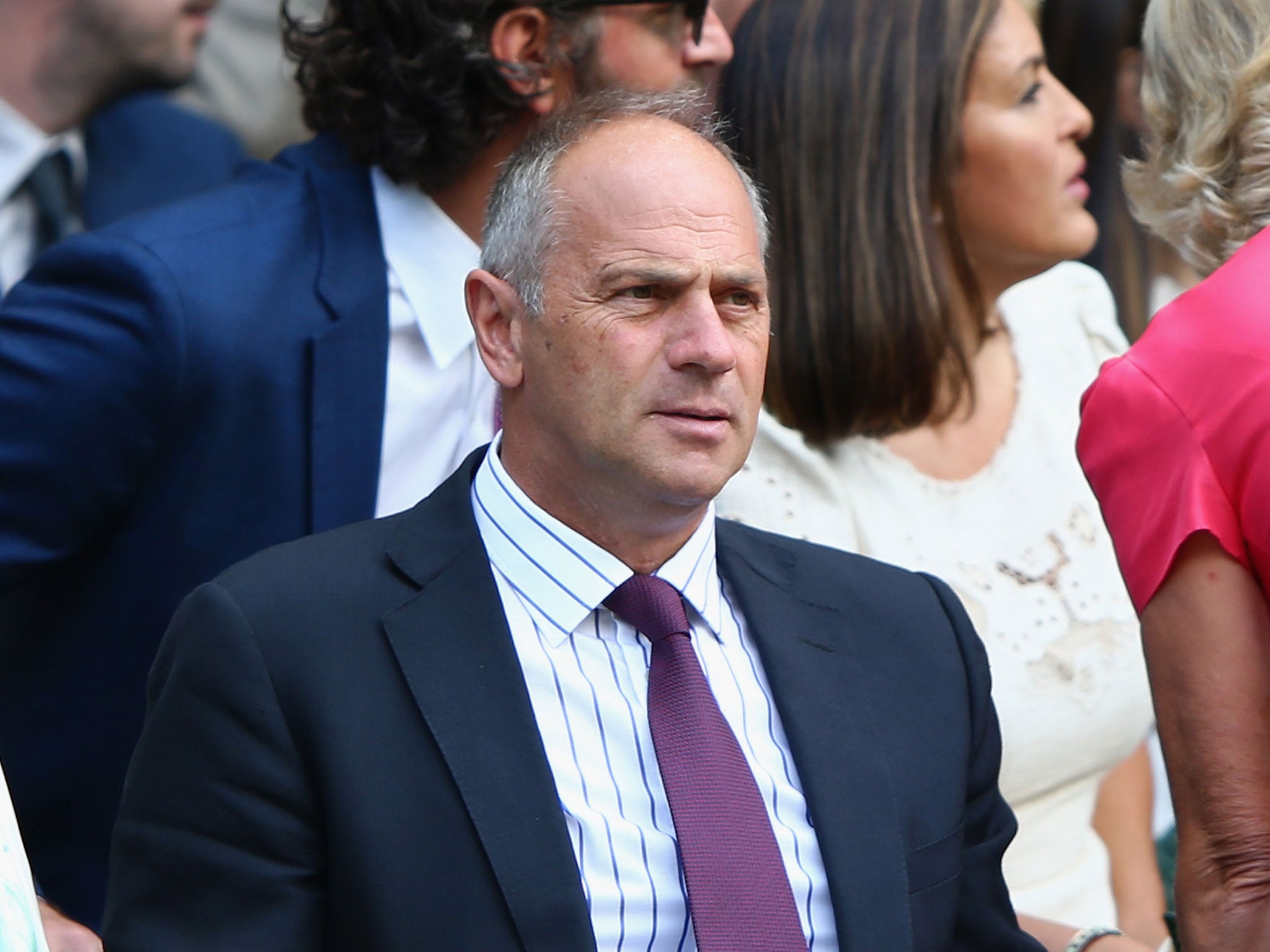Rio 2016: How Sir Steve Redgrave inspired Siobhan Marie O'Connor to Olympic swimming silver
The 20-year-old, like the former rower, suffers from the chronic bowel condition ulcerative colitis

Your support helps us to tell the story
From reproductive rights to climate change to Big Tech, The Independent is on the ground when the story is developing. Whether it's investigating the financials of Elon Musk's pro-Trump PAC or producing our latest documentary, 'The A Word', which shines a light on the American women fighting for reproductive rights, we know how important it is to parse out the facts from the messaging.
At such a critical moment in US history, we need reporters on the ground. Your donation allows us to keep sending journalists to speak to both sides of the story.
The Independent is trusted by Americans across the entire political spectrum. And unlike many other quality news outlets, we choose not to lock Americans out of our reporting and analysis with paywalls. We believe quality journalism should be available to everyone, paid for by those who can afford it.
Your support makes all the difference.Siobhan-Marie O’Connor, Great Britain’s latest star of the pool, has revealed how a chat with Sir Steve Redgrave inspired her to win silver in Tuesday night’s 200m individual medley at the Olympic Aquatics Stadium. The 20-year-old from Bath suffers from the chronic bowel condition, ulcerative colitis, as does the former British rower and a conversation between the pair made her realise what was possible.
O’Connor, who finished second behind the Hungarian late developer Katinka Hosszu in a time of 2min 06.88sec, spoke to the five-time gold medal winner after British Swimming arranged a meeting.
“I was lucky enough to meet Sir Steve last year and he was kind enough to give up two hours to talk to me. I was so inspired,” O’Connor said. “It was one of the best days of my life. He is a sporting legend, an idol for all people in Britain, so for him to come and talk things through with me made me feel so much better with what I have.
“It is not a problem because everyone in sport has something to deal with, whether it is a long-term injury or anything. I have this thing to deal with. I have an amazing team around me to control it as best I can. Obviously it is not ideal and it can play up but I have to deal with it. I am in a great place now. It is not something that is well known and it can be hard.
“He just shows you can do what you want - that was the biggest message. He has been through it and he is the best Olympian ever. It just shows you can get through it. The whole time we spoke I was like ‘wow’.”
Siobhan-Marie’s parents, Sean and Lindsey spoke eloquently and from the heart about the battle the family have been through and the problems in getting their daughter, who swam for GB at London 2012, diagnosed.
“We knew something was wrong,” Lindsey, said. “She was very, very ill at London. “We were told that it was due to stress because she was taking GCSEs and had the Olympics. It was all down to something else.”
“She qualified for those Olympics undiagnosed,” her father added. “We look back now and feel quite guilty as parents. She was taking 10 immodium a day just to get through training. We look back on a picture when she first qualified for the Olympics on the front page of The Sunday Telegraph and she looked like a ghost. We look back on that and think ‘why didn’t we realise that something was wrong?’.”
“They thought she couldn’t possibly do what she does with having that condition,” Lindsey added. “When she was diagnosed, I think it was more of a relief than anything else because she was able to get the right medication and she is able to keep weight on. She is a lot healthier and she is not in pain constantly. It is just so much easier for her now.”
Sean went along with Siobhan-Marie to the meeting with Redgrave and he, like his daughter, is extremely grateful. “He is a very busy man so I thought it would be 20 minutes. It was two hours and they were still chatting. He is such an inspiration.” “He gave her the confidence that she could do elite sport and have this condition. When she was first diagnosed we did panic a little bit,” Lindsey added.
So how does Siobhan-Marie cope with day to day life? “It is not a condition that you would want to mention as a 20-year-old girl to be honest,” her dad says. “There’s that. Also, because she doesn’t want to be ‘poor me’ and ‘why me?’ she has just got on with it. She takes the view that most people have something to deal with whether it be not having a 50m pool anywhere near by, not going to altitude training. She has got a lot of positives but she has the negative of having a chronic condition that undermines her ability to do as well as she could do otherwise. She is quite pragmatic about it. Nothing is perfect in life. She deals with it.”
So had her parents always seen success coming, even when she was little? “She has always been a competitive person in whatever she has done,” her mum admitted. “At school in the cross country, in a maths test she has always got to win everything. Swimming was no different. She loves the competing side of it. Each time it has been a bit bigger pool and a bit bigger audience…”

O’Connor was delighted with her performance and put her success down in part to going through the London 2012 experience even though she know admits it was probably all too much for her.
“London was a dream come true,” she said. “I remember when I was younger I watched Beijing and thought I would love to be in there. London taught me a lot, seeing how a Games works. Yeah, I do feel like a different swimmer now.”
Her mum agreed: “Doing London helped when she was 16. She experienced an Olympic event. She even did a final. She experienced that pressure of going out there and at 16 and she coped with it. At 20, even though there was more expectation on her this time, she was able to go and say ‘I have done this and I know what is coming.’ That helped her a lot.”
O’Connor also said the mood in the swimming camp on the back of one gold and three silvers was one of jubilation – but that she could see success coming due to the tough love regime of swim coach Bill Furniss. “We all worked so hard to be part of the team. I am so proud. Our coaches do everything for us. It is testament to them and the swimmers we have.
“I have seen this team change and gel. We are now so strong and rooting for each other. The conditions we had for the holding camp were brilliant. To get the only 50m pool in Brazil to train in was perfect. We had a tough trials but it meant we came here the best prepared team. It taught us to be tough, to be relentless and people are swimming well when it matters.”
Especially O’Connor.
Join our commenting forum
Join thought-provoking conversations, follow other Independent readers and see their replies
Comments